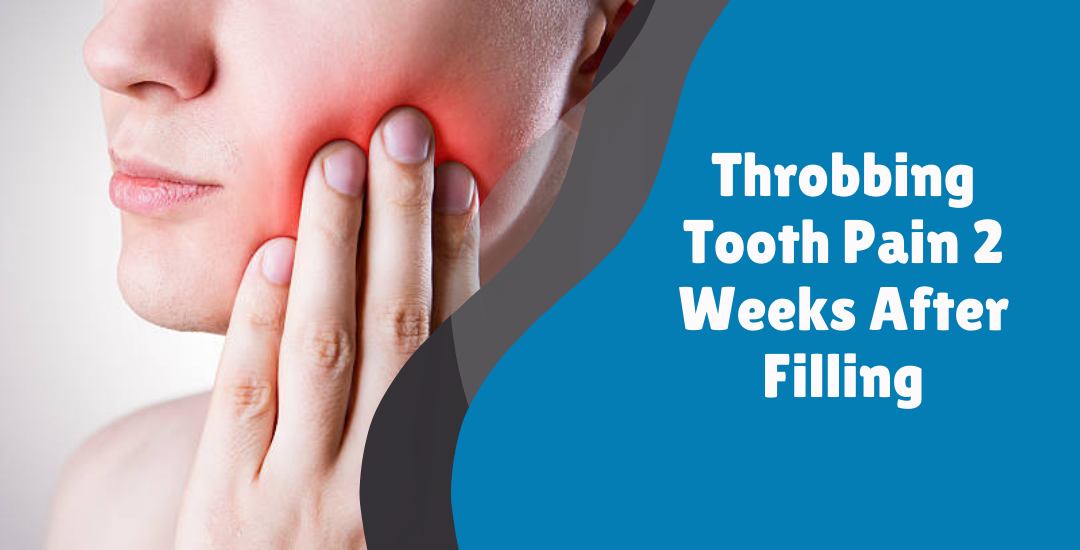Dr. Alisha Khan, an esteemed dentist in Chembur, states, “While discomfort after a filling is common, severe pain may be a sign that something else is at play, such as an infection or nerve irritation. Addressing the issue early can prevent further complications and ensure the long-term health of your teeth.”
A dental filling is often the go-to treatment for repairing cavities and protecting teeth. While most patients experience relief after the procedure, others might develop new symptoms, such as tooth sensitivity or pain. One common concern is throbbing pain weeks after the procedure. This can be concerning, especially if the pain intensifies over time.
If you’re experiencing throbbing tooth pain 2 weeks after filling, it’s essential to understand the causes and possible treatments. Dr. Alisha Khan, an esteemed dentist in Chembur, states, “While discomfort after a filling is common, severe pain may be a sign that something else is at play, such as an infection or nerve irritation. Addressing the issue early can prevent further complications and ensure the long-term health of your teeth.”
At Evershine Dental Clinic in Chembur, Mumbai, Dr. Alisha Khan offers a wide range of services, including general dentistry, dental implants, and orthodontics. With a reputation for excellence and compassionate care, she provides effective toothache treatments to relieve dental issues, such as post-filling tooth pain.
Experiencing tooth pain after a dental filling? It’s time to seek expert care for pain relief. Book an appointment now!
Is It Normal to Experience Throbbing Tooth Pain 2 Weeks After Filling?
It’s not uncommon to experience some discomfort after a dental filling. This can include tooth sensitivity or mild pain, which generally subsides within a few days. However, if you’re dealing with throbbing tooth pain 2 weeks after filling, it could indicate a deeper issue.
Throbbing pain is often associated with inflammation, nerve irritation, or infection.
In some cases, the filling might be too high, putting pressure on the tooth and leading to persistent pain. Another possibility is that the tooth’s pulp (the soft tissue inside) has been damaged, which can occur if the cavity is too deep.
“If your pain worsens or is accompanied by swelling, it’s essential to consult a dentist promptly,” advises Dr. Alisha Khan, a prominent dentist in Chembur, Mumbai. A professional can assess the condition, adjust the filling if necessary, and provide appropriate toothache pain relief.

What Are the Causes of Throbbing Tooth Pain 2 Weeks After Filling?
High Filling
If the filling is higher than the surrounding tooth structure, it can cause pressure when you bite down, leading to pain.
Nerve Irritation
Sometimes, the filling may irritate the tooth’s nerve, causing inflammation and discomfort.
Pulpitis
Inflammation of the tooth’s pulp, known as pulpitis, can occur if the cavity is too close to the nerve.
Are you concerned about ongoing tooth pain? Reach out to a specialist for expert advice and care. Schedule your consultation now.
How to Relieve Throbbing Tooth Pain 2 Weeks After Filling?
Adjusting the Filling
If your filling is too high, your dentist can adjust it to relieve pressure on the tooth.
Pain Medications
OTC pain relievers recommended by the dentist can help reduce pain and inflammation.
Cold Compress
Applying a cold compress outside your cheek can reduce swelling and numb the pain.
Saltwater Rinse
Rinsing with warm salt water can help reduce inflammation and clean the affected area.
Maintain Good Oral Hygiene
Brushing and flossing your mouth can help prevent further irritation or infection around the filling.

Root Canal Treatment
If the pain is caused by deep nerve damage, your dentist may recommend a root canal to remove the damaged tissue.
Are you unsure when to seek help? Let’s explore the signs that indicate it’s time to consult a dentist.
When to Consult a Dentist
Persistent Pain: If pain lasts more than two weeks or intensifies.
Swelling or Fever: Swelling, fever, or pus could indicate an infection that needs urgent treatment.
Difficulty Biting: If biting down causes severe discomfort, it could mean your filling needs adjustment.
Visible Cracks or Chips: If you notice any cracks or damage to the filled tooth.
Nerve Pain: Sharp, shooting pain might indicate nerve damage, requiring immediate attention.

Conclusion
Don’t let tooth pain disrupt your life. Consult a dental expert today to explore your treatment options. Book your appointment now.
Throbbing Tooth Pain? See a Dentist in Chembur
Frequently Asked Questions
1. How long should teeth hurt after fillings?
2. How to stop pain after tooth filling?
3. Why does my tooth hurt worse after a filling?
4. Is throbbing pain a sign of a failed filling?
5. How do I prevent pain after a filling?
Disclaimer: This page is for informational purposes and is not intended for promotional or marketing use.

